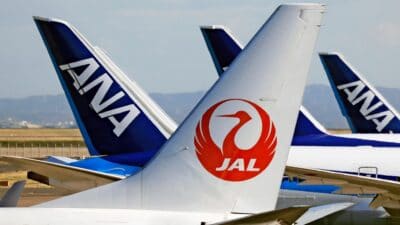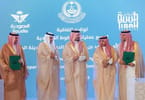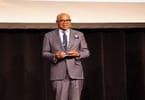Ministri turizma i vodeće turističke tvrtke s Bliskog istoka i sjeverne Afrike ponovili su svoje povjerenje u rast turizma u regiji tijekom prvog UNWTO/Arabian Travel Market Industry Forum (Dubai, 30 April 2012).
Entitled The Future of Tourism in the Middle East and North Africa (MENA): Ensuring sustainable growth in challenging times, the forum debated short and long term prospects for tourism in the region, stressing the encouraging signs emerging from destinations affected by the political changes of last year as well as the on-going strong expansion plans of tourism infrastructure in the countries of the Gulf.
Sudionici foruma ponovili su svoje povjerenje u rast turizma u regiji, gdje je taj sektor postao ključni stup lokalnog gospodarstva i zapošljavanja te središnji dio nacionalnih razvojnih politika.
Moderated by John Andrews, Editor for The Economist and one of its most experienced foreign correspondents, the forumcounted on the participation of H.R.H. Prince Sultan bin Salman bin Abdul-Aziz Al-Saud, President and Chairman of the Board of the Saudi Commission for Tourism and Antiquities, Mounir Fakhry Abdel Nour, Minister of Tourism of Egypt, Ahmed Abdulla Al-Nuaimi, Chairman of Qatar Tourism Authority, Mohammed Rashed, Chief Executive Officer, Hotel and Tourism Sector of the Al KharafiGroup, Gerald Lawless, Executive Chairman of the Jumeirah Group and Frederic Bardin, Senior Vice President of Emirates Holidays.
UNWTO Secretary-General, Taleb Rifai said: “Despite recurrent challenges, the story of tourism in the Middle East and North Africa is one of success. The sector has become an economic powerhouse for the region, generating US$60 billion in export earnings and creating millions of jobs. This outstanding performance is the result of strong and committed public tourism policies aimed at diversifying national economies and create much needed jobs, especially for the youth, and strong private sector investment. These conditions remain unaltered”.
Reed Travel Exhibitions Managing Director, Richard Mortimore said: “The launch of this high-level forum could not come at a more opportune moment. It is a sign of the importance of tourism to the region that this high-profile group of ministers and industry leaders have come to share a platform at Arabian Travel Market, the region’s premier travel trade exhibition. It is sure to prove to be as successful and as influential as the well-established UNWTO and WTM Ministers’ Summit has been at fellow Reed Travel Exhibitions event World Travel Market over the past five years.”
The need for the region’s key players to work together in order to achieve a greater share of the global pie, was a key theme of the summit, with the Undersecretary of Oman’s Ministry of Tourism,Maitha Al Mahrouqi, saying: “I don’t see us [Oman] competing with the UAE, we are complementing the UAE.”
"Moramo surađivati s drugim industrijama kako bi cijelo turističko iskustvo bilo zadovoljstvo", dodao je egipatski ministar turizma Mounir Fakhry Abdel Nour.
While examples of visa facilitation exist in the region – Oman has a joint tourist visa arrangement with Qatar, the panel also flagged the need for the opening up of the visa system within the region. “A common electronic visa platform would actually enhance security – not decrease it – and facilitate smoother travel globally,” said Gerald Lawless, Executive Chairman of the Jumeirah Group.
Korištenje električnih romobila ističe UNWTO/Arabian Travel Market IndustryForum brought together ministers as well as travel industry leaders from the region to discuss how to boost demand and foster employment under challenging economic and political conditions. International tourist arrivals in the MENA region rose from 34 million in 2000 to 79 million in 2010, making the region one of the fastest growing tourism destinations worldwide. In 2011, the region lost some seven million tourists, in spite of the good performance of some destinations.
In 2010, international tourist arrivals to the Middle East and North Africa were at 79 million (60 million in the Middle East and 19 million in North Africa). Receipts from international tourism reached US$ 60 billion (US$ 50 billion in the Middle East and US$ 10 billion in North Africa) in 2010. In 2011, due to recent political development, international tourist arrivals to the Middle East were down by 8% to 55 million and to North Africa by 10% to 17 million.
ŠTO ISKLJUČITI IZ OVOG ČLANKA:
- Ensuring sustainable growth in challenging times, the forum debated short and long term prospects for tourism in the region, stressing the encouraging signs emerging from destinations affected by the political changes of last year as well as the on-going strong expansion plans of tourism infrastructure in the countries of the Gulf.
- Prince Sultan bin Salman bin Abdul-Aziz Al-Saud, President and Chairman of the Board of the Saudi Commission for Tourism and Antiquities, Mounir Fakhry Abdel Nour, Minister of Tourism of Egypt, Ahmed Abdulla Al-Nuaimi, Chairman of Qatar Tourism Authority, Mohammed Rashed, Chief Executive Officer, Hotel and Tourism Sector of the Al KharafiGroup, Gerald Lawless, Executive Chairman of the Jumeirah Group and Frederic Bardin, Senior Vice President of Emirates Holidays.
- The need for the region's key players to work together in order to achieve a greater share of the global pie, was a key theme of the summit, with the Undersecretary of Oman’s Ministry of Tourism,Maitha Al Mahrouqi, saying.






















